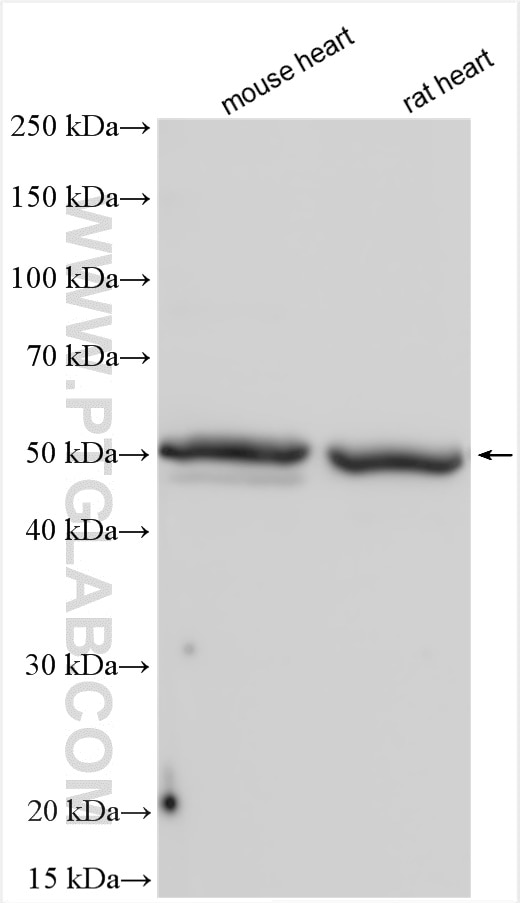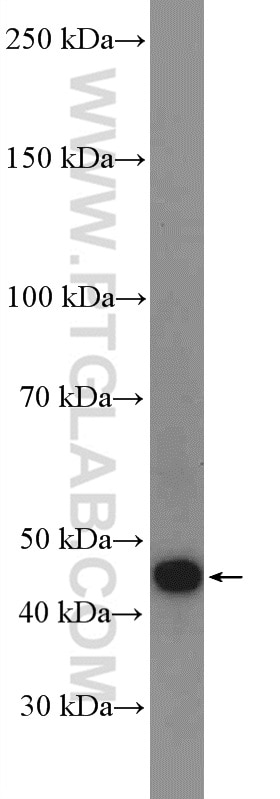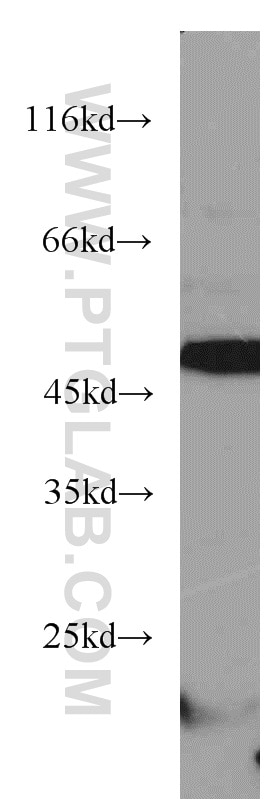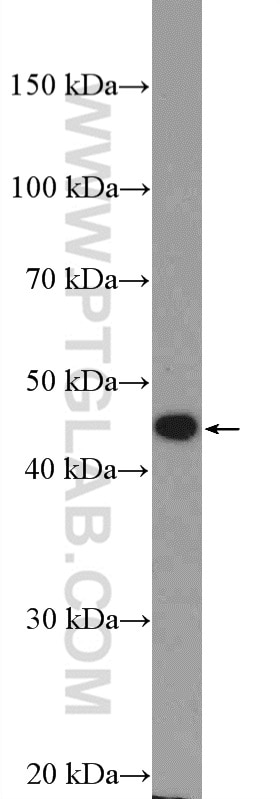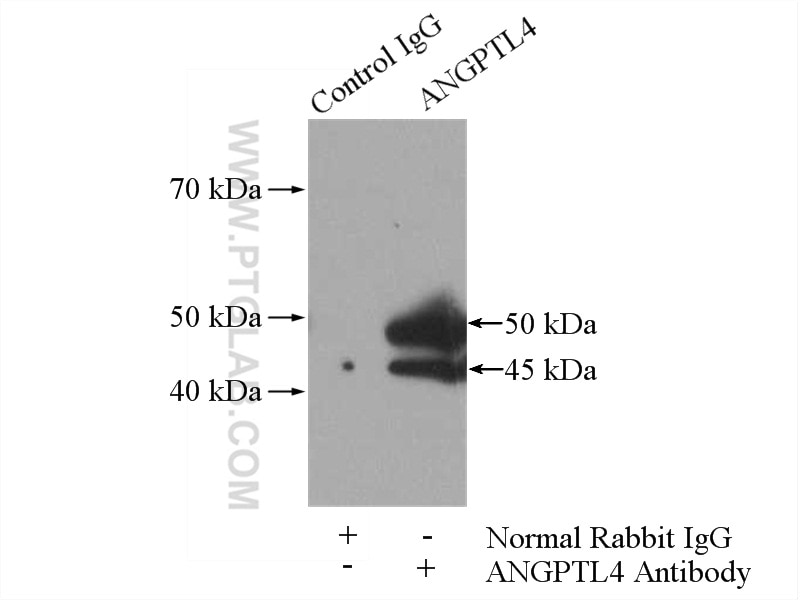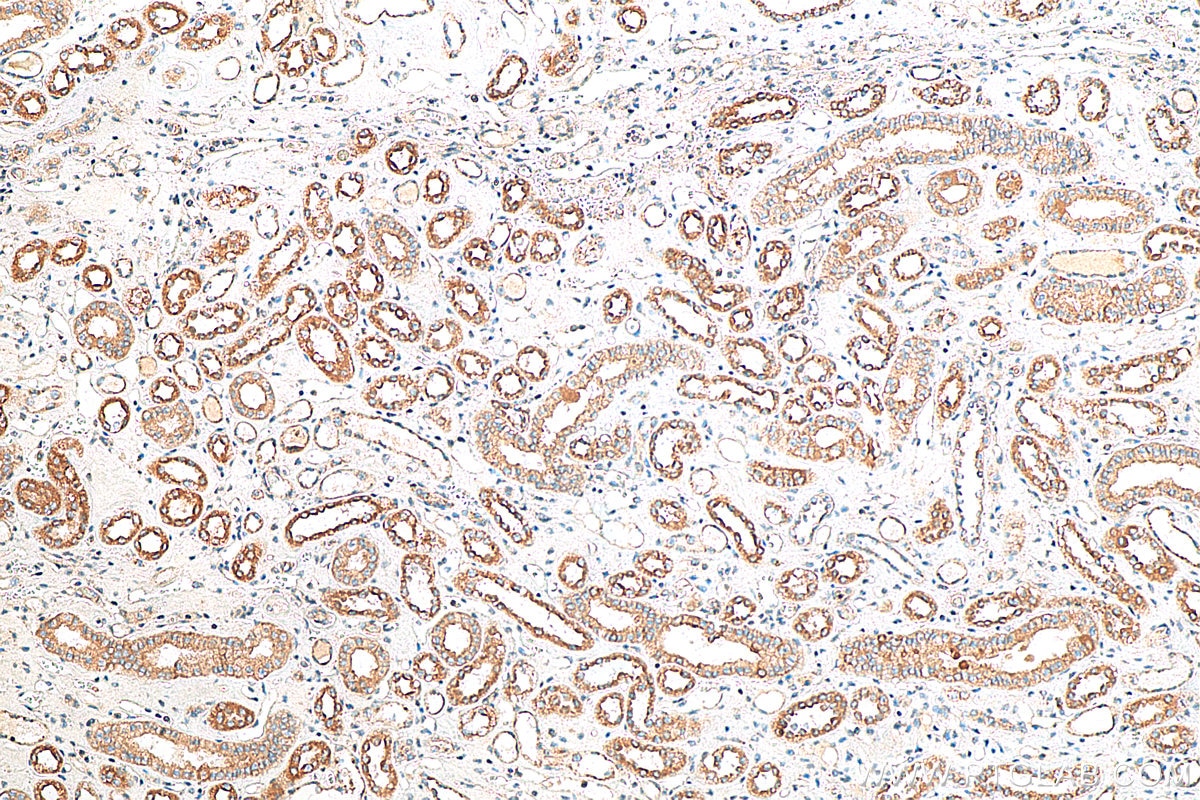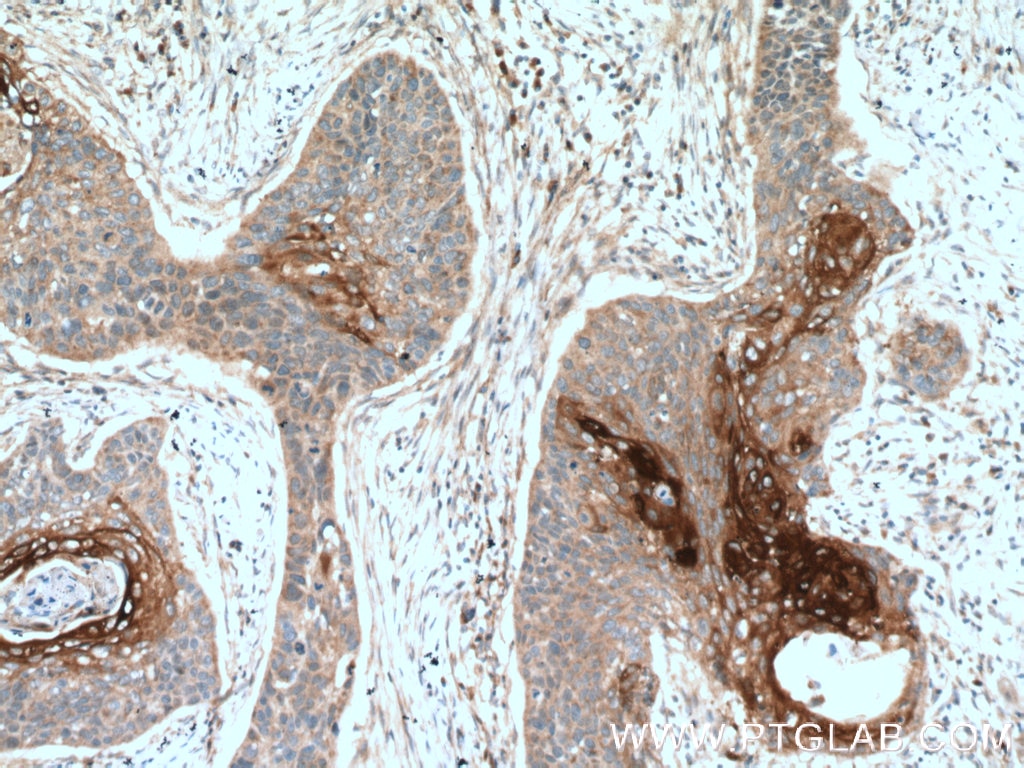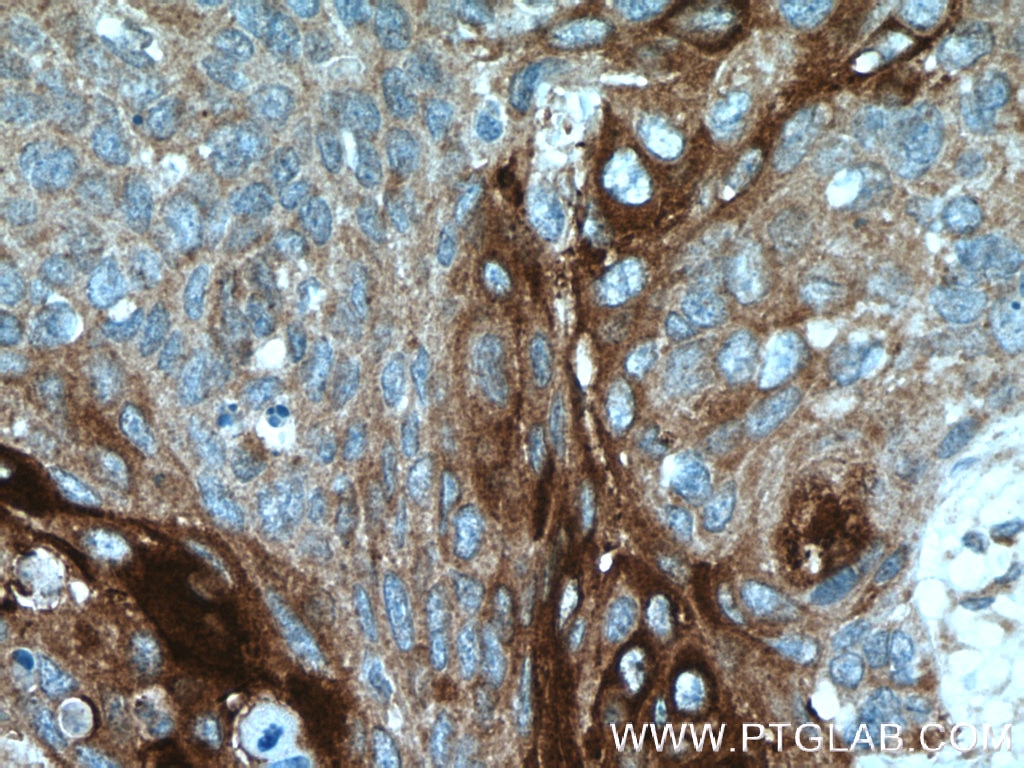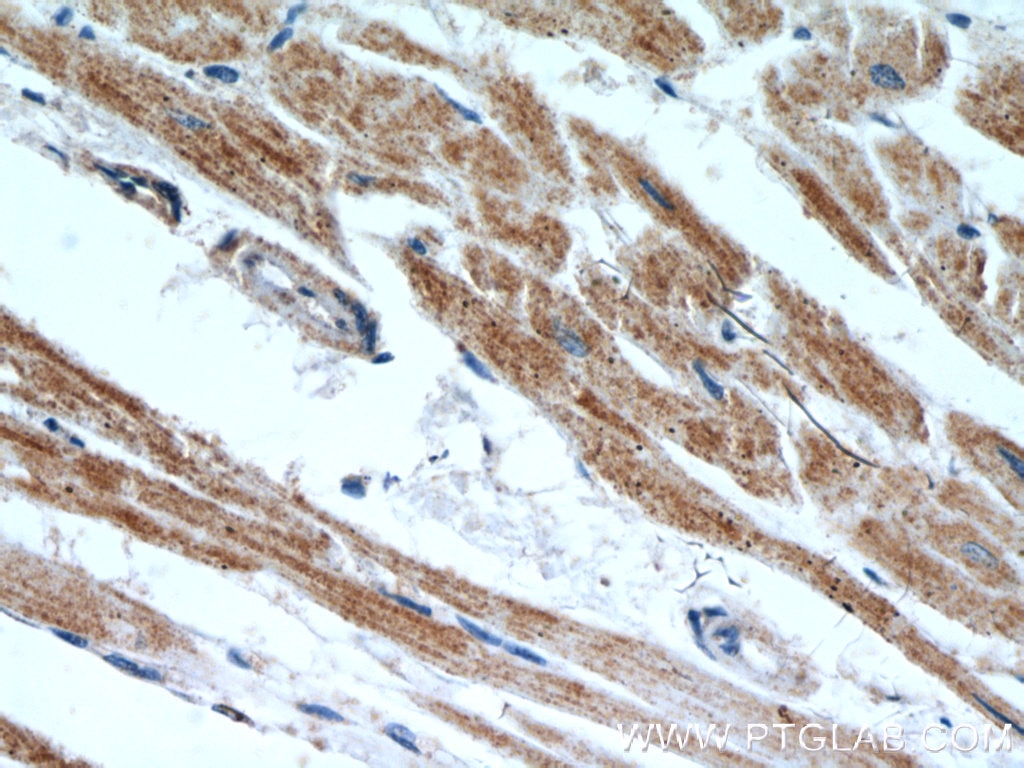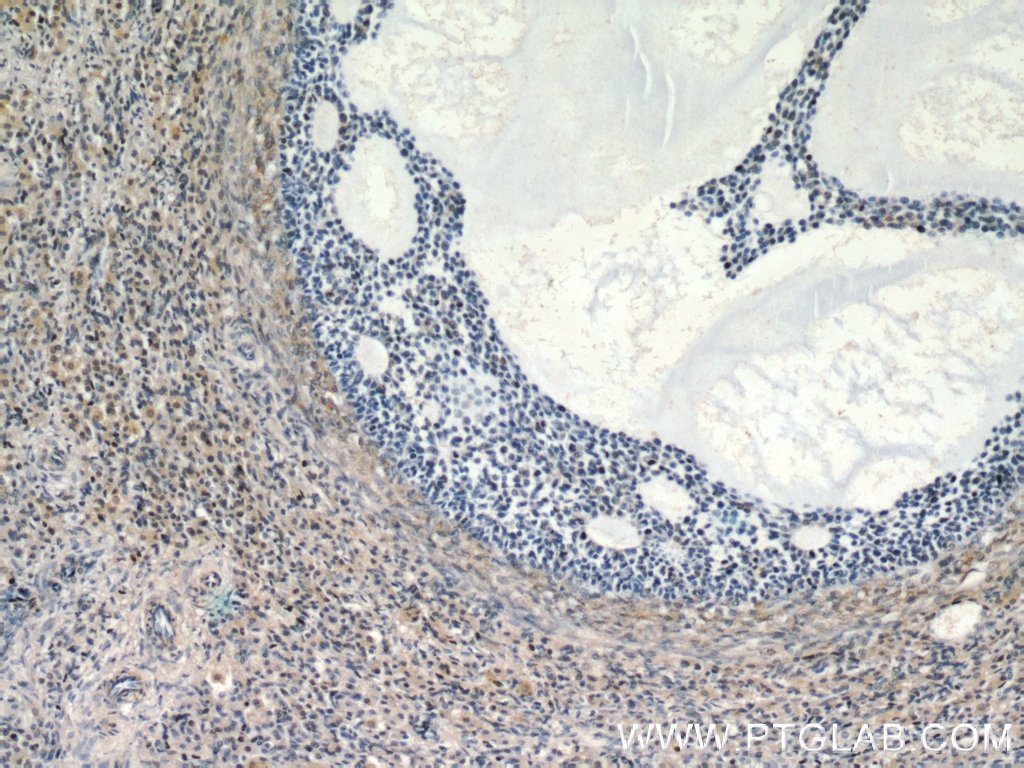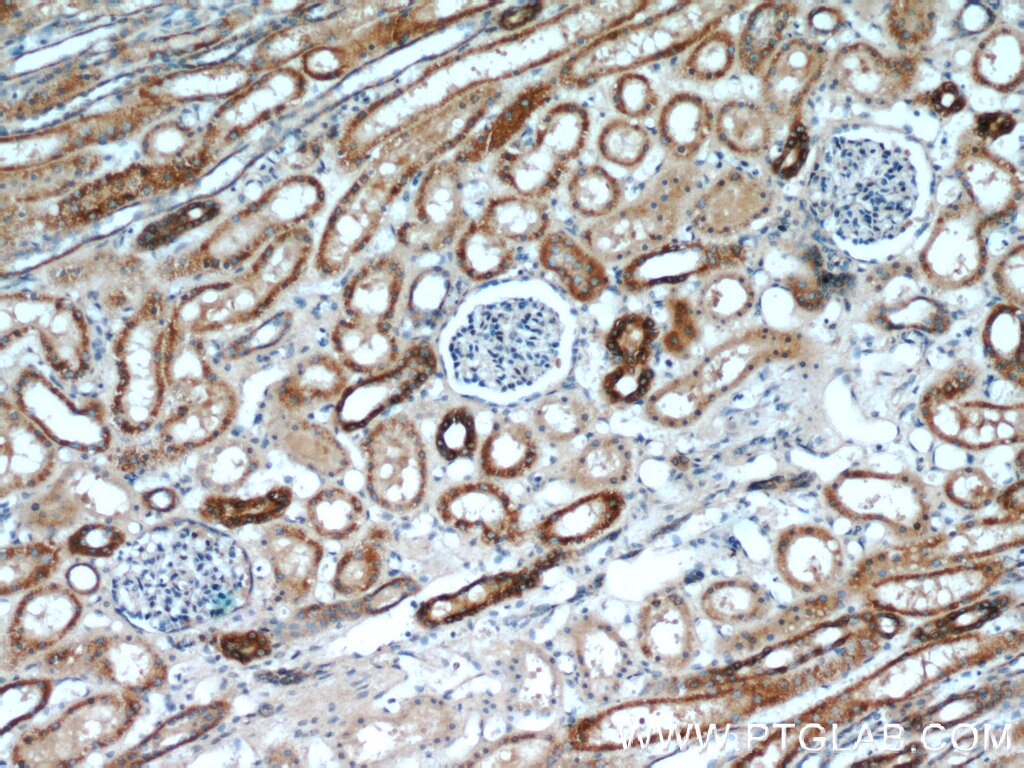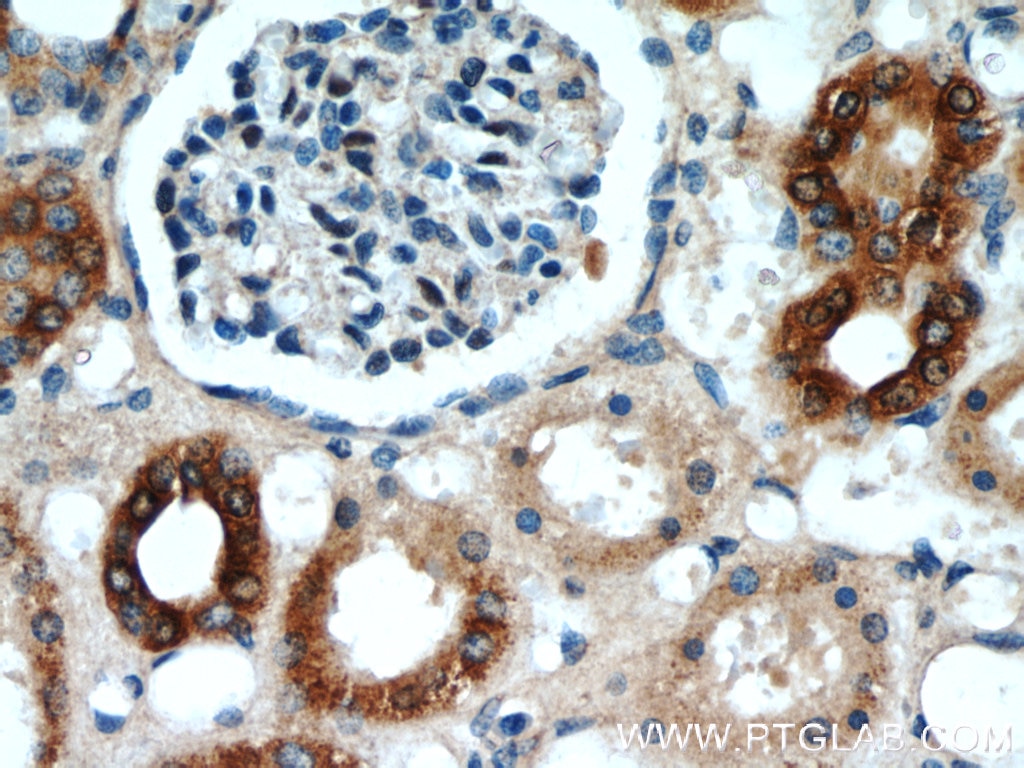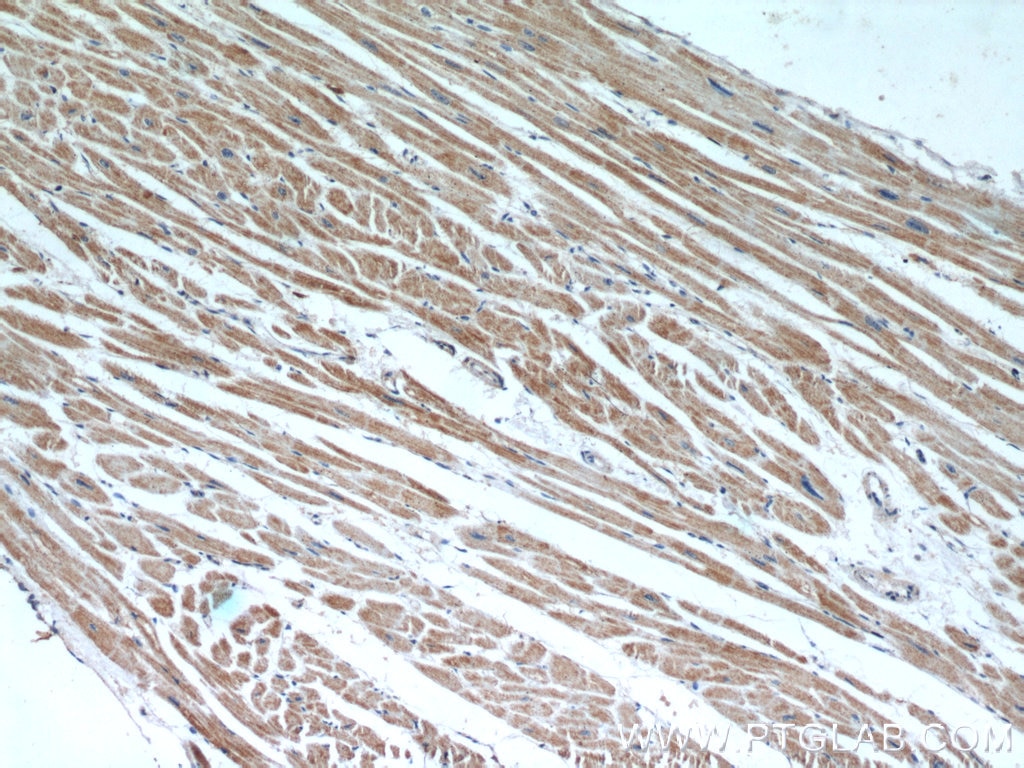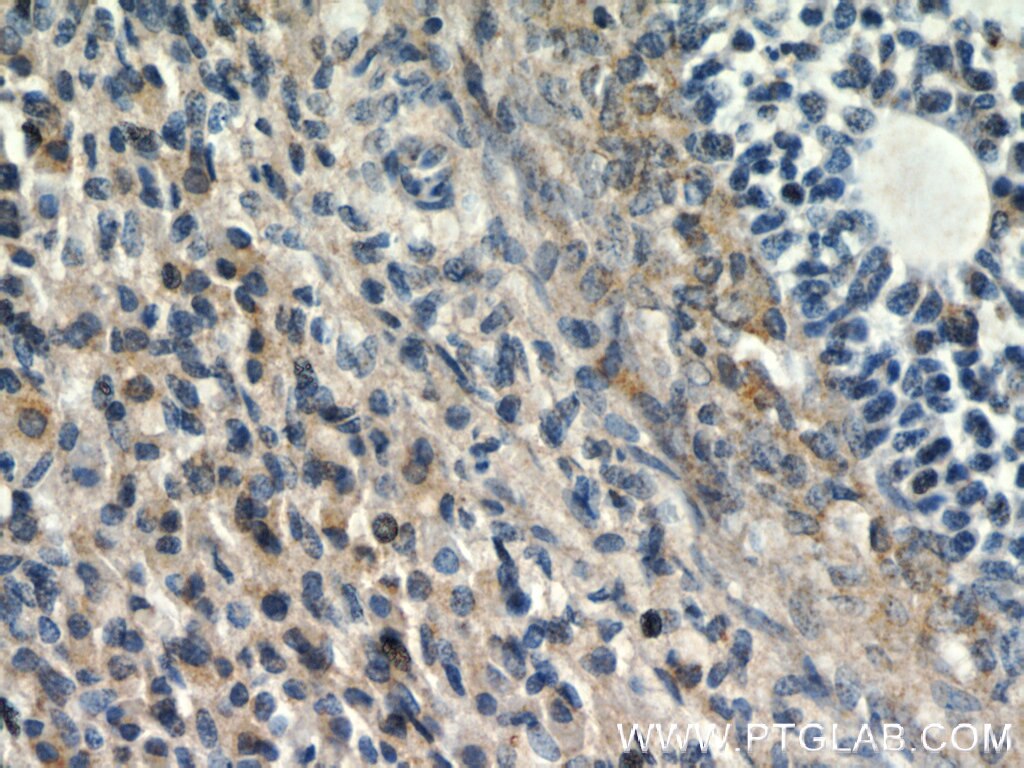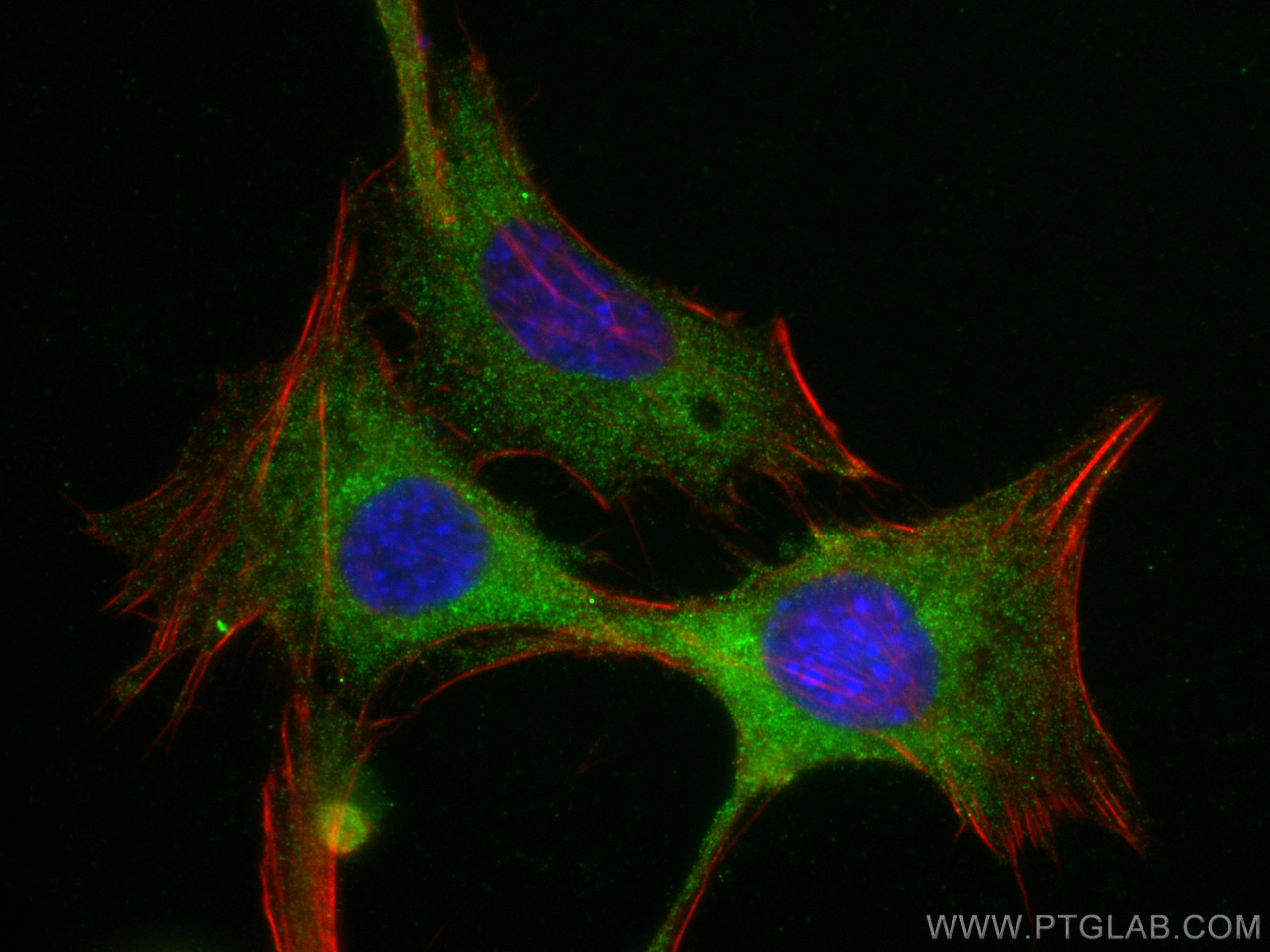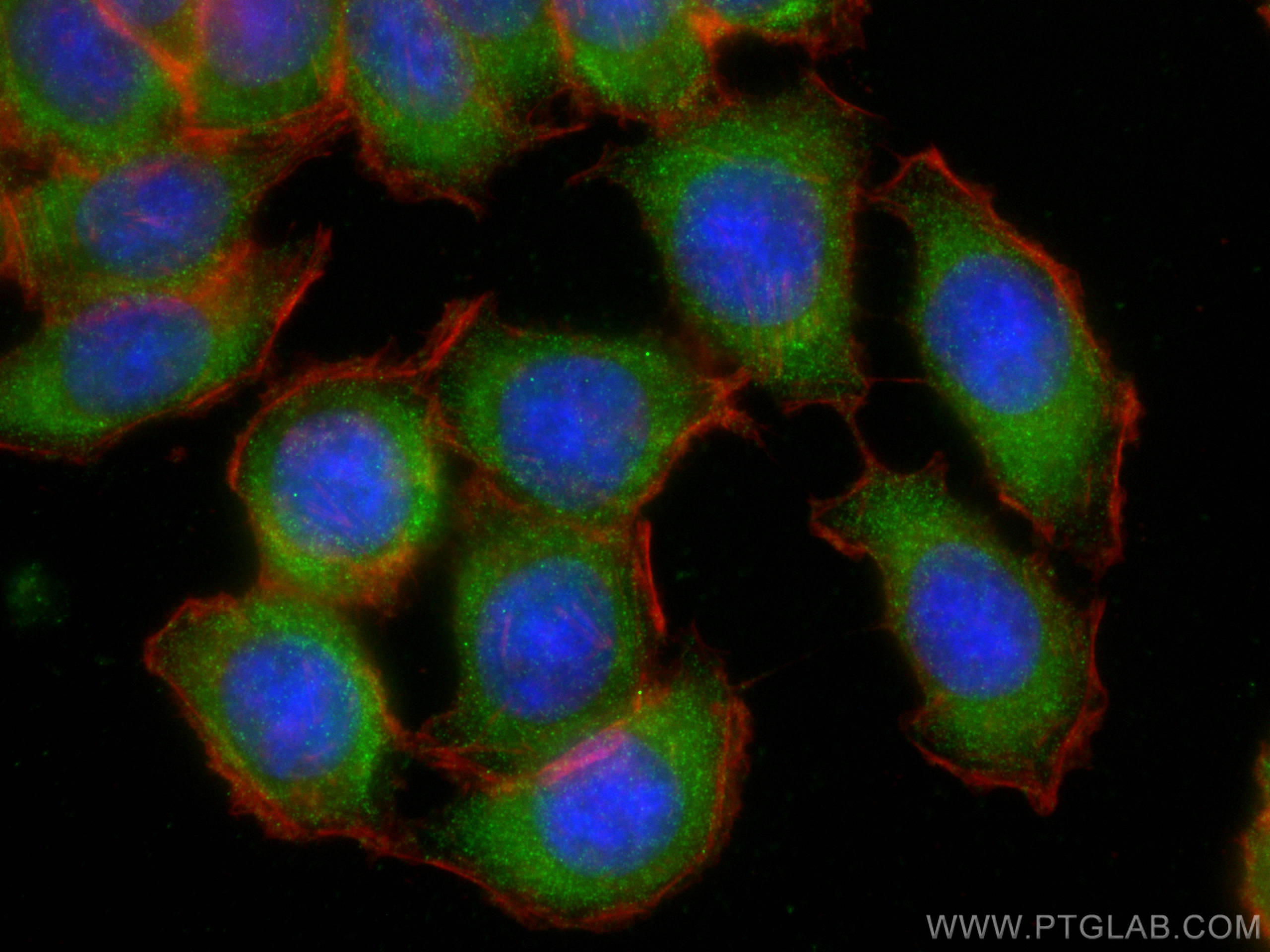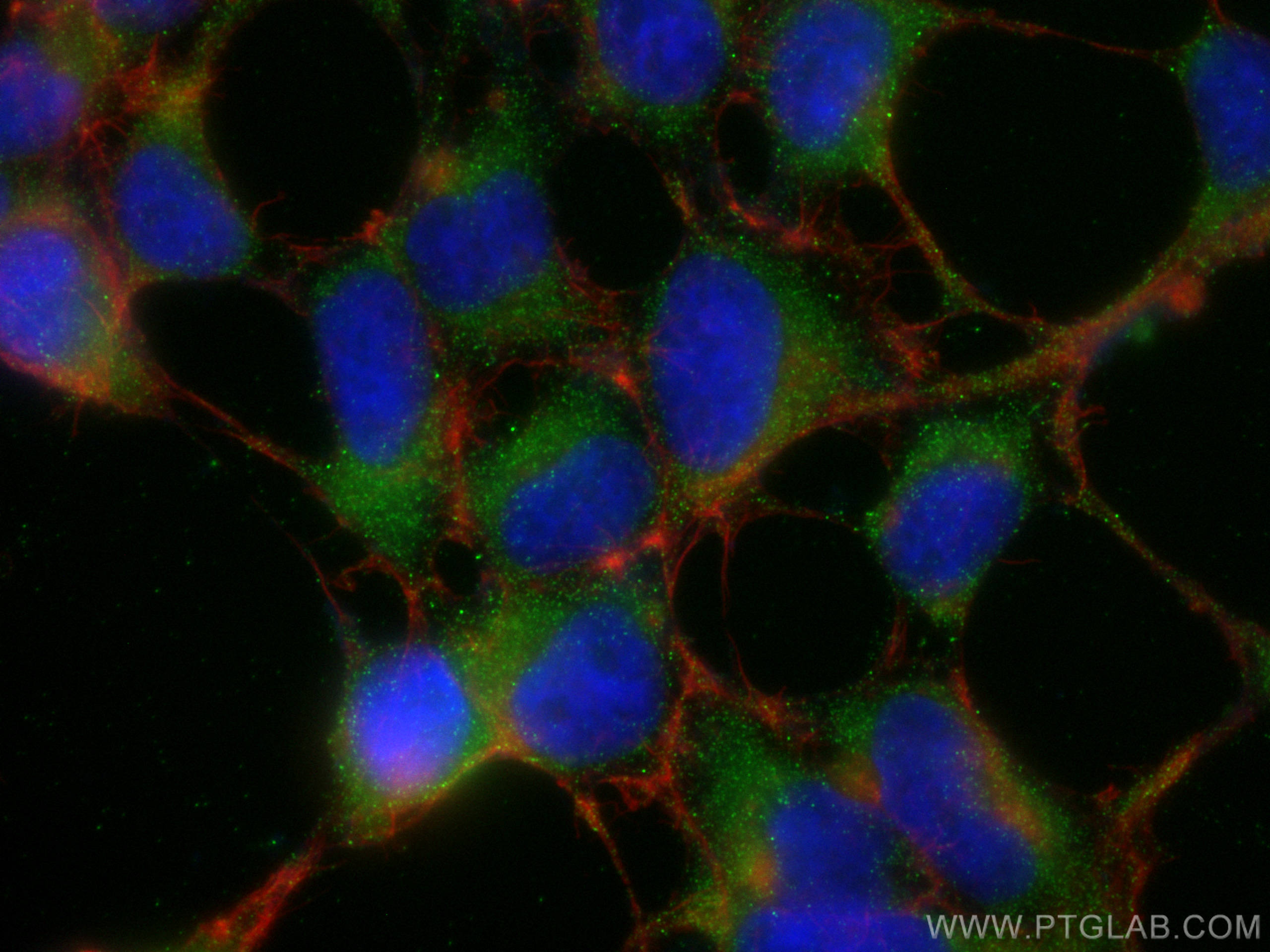- Featured Product
- KD/KO Validated
ANGPTL4 Polyklonaler Antikörper
ANGPTL4 Polyklonal Antikörper für WB, IHC, IF/ICC, IP, ELISA
Wirt / Isotyp
Kaninchen / IgG
Getestete Reaktivität
human, Maus, Ratte
Anwendung
WB, IHC, IF/ICC, IP, ELISA
Konjugation
Unkonjugiert
Kat-Nr. : 18374-1-AP
Synonyme
Geprüfte Anwendungen
| Erfolgreiche Detektion in WB | Mausherzgewebe, HEK-293-Zellen, Mausnierengewebe, Rattenherzgewebe |
| Erfolgreiche IP | Mausherzgewebe |
| Erfolgreiche Detektion in IHC | humanes Nierengewebe, humanes Herzgewebe, humanes Ösophaguskarzinomgewebe, humanes Eierstockgewebe Hinweis: Antigendemaskierung mit TE-Puffer pH 9,0 empfohlen. (*) Wahlweise kann die Antigendemaskierung auch mit Citratpuffer pH 6,0 erfolgen. |
| Erfolgreiche Detektion in IF/ICC | NIH/3T3-Zellen, HEK-293-Zellen, HT-29-Zellen |
Empfohlene Verdünnung
| Anwendung | Verdünnung |
|---|---|
| Western Blot (WB) | WB : 1:500-1:1000 |
| Immunpräzipitation (IP) | IP : 0.5-4.0 ug for 1.0-3.0 mg of total protein lysate |
| Immunhistochemie (IHC) | IHC : 1:50-1:500 |
| Immunfluoreszenz (IF)/ICC | IF/ICC : 1:50-1:500 |
| It is recommended that this reagent should be titrated in each testing system to obtain optimal results. | |
| Sample-dependent, check data in validation data gallery | |
Veröffentlichte Anwendungen
| KD/KO | See 8 publications below |
| WB | See 28 publications below |
| IHC | See 19 publications below |
| IF | See 9 publications below |
| IP | See 1 publications below |
Produktinformation
18374-1-AP bindet in WB, IHC, IF/ICC, IP, ELISA ANGPTL4 und zeigt Reaktivität mit human, Maus, Ratten
| Getestete Reaktivität | human, Maus, Ratte |
| In Publikationen genannte Reaktivität | human, Maus, Ratte |
| Wirt / Isotyp | Kaninchen / IgG |
| Klonalität | Polyklonal |
| Typ | Antikörper |
| Immunogen | ANGPTL4 fusion protein Ag13237 |
| Vollständiger Name | angiopoietin-like 4 |
| Berechnetes Molekulargewicht | 45 kDa |
| Beobachtetes Molekulargewicht | 45-50 kDa |
| GenBank-Zugangsnummer | BC023647 |
| Gene symbol | ANGPTL4 |
| Gene ID (NCBI) | 51129 |
| Konjugation | Unkonjugiert |
| Form | Liquid |
| Reinigungsmethode | Antigen-Affinitätsreinigung |
| Lagerungspuffer | PBS with 0.02% sodium azide and 50% glycerol |
| Lagerungsbedingungen | Bei -20°C lagern. Nach dem Versand ein Jahr lang stabil Aliquotieren ist bei -20oC Lagerung nicht notwendig. 20ul Größen enthalten 0,1% BSA. |
Hintergrundinformationen
Angiopoietin-like protein 4 (ANGPTL4), a member of the angiopoietin-like protein subfamily, is a secretory protein that functions as an important modulator of glucose and lipid metabolism. ANGPTL4 inhibits lipoprotein lipase (LPL)-dependent lipolysis thereby limiting the uptake of free fatty acids. Overexpression of ANGPTL4 results in hypertriglyceridemia, while ANGPTL4 deficiency suppresses foam formation in macrophages and protects against atherosclerosis. ANGPTL4 may play a role in several cancers and it also has been shown to prevent the metastatic process by inhibiting vascular activity as well as tumor cell motility and invasiveness. Decreased expression of this protein has been associated with type 2 diabetes. ANGPTL4 has three isoforms, 45 kDa, 41 kDa and 27 kDa.
Protokolle
| PRODUKTSPEZIFISCHE PROTOKOLLE | |
|---|---|
| WB protocol for ANGPTL4 antibody 18374-1-AP | Protokoll herunterladen |
| IHC protocol for ANGPTL4 antibody 18374-1-AP | Protokoll herunterladenl |
| IF protocol for ANGPTL4 antibody 18374-1-AP | Protokoll herunterladen |
| IP protocol for ANGPTL4 antibody 18374-1-AP | Protokoll herunterladen |
| STANDARD-PROTOKOLLE | |
|---|---|
| Klicken Sie hier, um unsere Standardprotokolle anzuzeigen |
Publikationen
| Species | Application | Title |
|---|---|---|
Nat Metab Resistant starch intake facilitates weight loss in humans by reshaping the gut microbiota | ||
J Hazard Mater Insight into perfluorooctanoic acid-induced impairment of mouse embryo implantation via single-cell RNA-seq | ||
J Clin Invest Angiopoietin-like 4 binds neuropilins and cooperates with VEGF to induce diabetic macular edema. | ||
J Pathol ANGPTL4-αvβ3 integrin interaction counteracts hypoxia-induced vascular permeability by modulating Src signalling downstream of VEGFR2. | ||
Breast Cancer Res An integrated genomic approach identifies persistent tumor suppressive effects of transforming growth factor-beta in human breast cancer. |
Rezensionen
The reviews below have been submitted by verified Proteintech customers who received an incentive for providing their feedback.
FH Niklas (Verified Customer) (11-28-2022) | bright and specific staining
|
